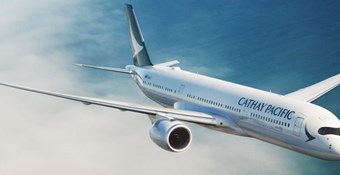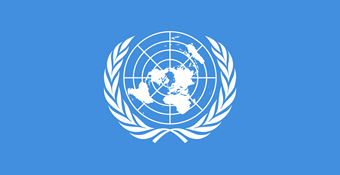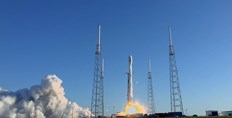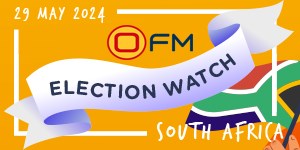World News
Eight men own the same wealth as poorest half of the world─── 11:10 Mon, 16 Jan 2017
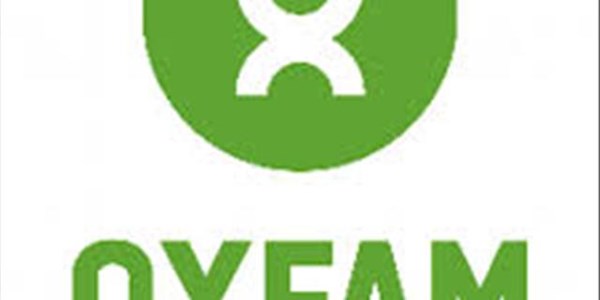
London - Eight men own the same wealth as the 3.6 billion people who make up the poorest half of humanity, according to a new report published by Oxfam today to mark the annual meeting of political and business leaders in Davos.
The 47th World Economic Forum Annual Meeting will be held in Davos-Klosters, Switzerland, between 17-20 January under the theme “Responsive and Responsible Leadership”.
Oxfam’s report, ‘An economy for the 99 percent’, shows that the gap between rich and poor is far greater than had been feared. It details how big business and the super-rich are fuelling the inequality crisis by dodging taxes, driving down wages and using their power to influence politics. It calls for a fundamental change in the way we manage our economies so that they work for all people, and not just a fortunate few.
New and better data on the distribution of global wealth – particularly in India and China – indicates that the poorest half of the world has less wealth than had been previously thought. Had this new data been available last year, it would have shown that nine billionaires owned the same wealth as the poorest half of the planet, and not 62, as Oxfam calculated at the time.
In South Africa, the richest 1% of South Africans have 42% of the total wealth. Three billionaires have the same amount of wealth as the bottom 50% of South Africa.
“Such inequality is the sign of a broken economy, from global to local, and a lack of will from government to change the status quo,” said Oxfam SA Executive Director Sipho Mthathi. “Governments, including the South African government, can act to help everyone not just those at the top. They can build an economy where businesses pay their taxes and contribute to the wider good; where everyone is able to be healthy and educated, and where poverty wages are a thing of the past,” Mthathi added.
Oxfam’s report shows how our broken economies are funnelling wealth to a rich elite at the expense of the poorest in society, the majority of whom are women. The richest are accumulating wealth at such an astonishing rate that the world could see its first trillionaire in just 25 years. To put this figure in perspective – you would need to spend $1 million every day for 2738 years to spend $1 trillion.
Winnie Byanyima, Executive Director of Oxfam International, said:
“It is obscene for so much wealth to be held in the hands of so few when 1 in 10 people survive on less than $2 a day. Inequality is trapping hundreds of millions in poverty; it is fracturing our societies and undermining democracy.
“Across the world, people are being left behind. Their wages are stagnating yet corporate bosses take home million dollar bonuses; their health and education services are cut while corporations and the super-rich dodge their taxes; their voices are ignored as governments sing to the tune of big business and a wealthy elite.”
Public anger with inequality is already creating political shockwaves across the globe. Inequality has been cited as a significant factor in the election of Donald Trump in the US, the election of President Duterte in the Philippines, Brexit in the UK, and the record number of violent public protests in South Africa between 2013 and 2016 in which people are revolting against the status quo, against corruption and political capture. The growth in extreme inequality in South Africa gives rich elites the means to undermine public services, minimum wages and other effective anti-poverty strategies.
Across the globe seven out of 10 people live in a country that has seen a rise in inequality in the last 30 years. Between 1988 and 2011 the incomes of the poorest 10 percent increased by an average of just $3 per year, while the incomes of the richest 10 percent grew by an average of $11,800 a year – 182 times as much.
Women, who are often employed in low pay sectors, face high levels of discrimination in the work place, and who take on a disproportionate amount of unpaid care work often find themselves at the bottom of the pile. On current trends it will take 170 years for women to be paid the same as men.
‘An Economy for the 99 percent’
Reports also reveal how big business and the super-rich are fuelling the inequality crisis. It shows how, in order to maximize returns to their wealthy shareholders, big corporations are dodging taxes, driving down wages for their workers and the prices paid to producers, and investing less in their business.
Oxfam interviewed women working in a garment factory in Vietnam who work 12 hours a day, 6 days a week and still struggle to get by on the $1 an hour they earn producing clothes for some of the world’s biggest fashion brands. The CEOs of these companies are some of the highest paid people in the world. Corporate tax dodging costs poor countries at least $100 billion every year. This is enough money to provide an education for the 124 million children who aren’t in school and fund healthcare interventions that could prevent the deaths of at least six million children every year.
The report outlines how the super-rich use a network of tax havens to avoid paying their fair share of tax and an army of wealth managers to secure returns on their investments that would not be available to ordinary savers. Contrary to popular belief, many of the super-rich are not ‘self-made’. Oxfam analysis shows over half the world’s billionaires either inherited their wealth or accumulated it through industries which are prone to corruption and cronyism.
It also demonstrates how big business and the super-rich use their money and connections to ensure government policy works for them. For example, billionaires in Brazil have sought to influence elections and successfully lobbied for a reduction in tax bills while oil corporations in Nigeria have managed to secure generous tax breaks.
The recent State of the Capture Report released in South Africa late last year shed a light on the role of private rich individuals in setting the public policy agenda, and in the allocation of public resources. It highlights how most of those implicated, including the country’s President and some Ministers, worked with the rich to undermine the interests of the majority, the poor and working class.
With South Africa remaining one of the most unequal societies in the world, recent reports, including those by government, put the blame on poor governance and corruption both in the public and private sectors. The emphasise is that “inequality is greater today than at the end of Apartheid”. Extreme inequality creates a society where wealthy elites can have undue power and influence in society and in public affairs and it's bad for democracy.
Byanyima said: “The millions of people who have been left behind by our broken economies need solutions, not scapegoats. That is why Oxfam is setting out a new common sense approach to managing our economies so that they work for the majority and not just the fortunate few.”
“Governments are not helpless in the face of technological change and market forces. If politicians stop obsessing with GDP, and focus on delivering for all their citizens and not just a wealthy few, a better future is possible for everyone.”
Oxfam’s blueprint for a more human economy includes:
- Governments end the extreme concentration of wealth to end poverty. Governments should increase taxes on both wealth and high incomes to ensure a more level playing field, and to generate funds needed to invest in healthcare, education and job creation.
- Governments cooperate rather than just compete. Governments should work together to ensure workers are paid a decent wage, and to put a stop to tax dodging and the race to the bottom on corporate tax.
- Governments support companies that benefit their workers and society rather than just their shareholders. The multi-billion Euro company Mondragon is owned by its 74,000 strong workforce. All employees receive a decent wage because its pay structure ensures that the highest paid member of staff earns no more than 9 times the amount of the lowest paid. In South Africa currently CEO’s at Johannesburg Stock Exchange-listed companies earn over 50 times more than an average income of employees in the lowest band, which highlights the extent of unacceptable levels of inequality in South Africa.
- Governments ensure economies work for women. They must help to dismantle the barriers to women’s economic progress such as access to education and the unfair burden of unpaid care work.
Oxfam is also calling on business leaders to play their part in building a human economy. The World Economic Forum has responsive and responsible leadership as its key theme this year. They can make a start by committing to pay their fair share of tax and by ensuring their businesses pay a living wage.
People around the global can also join the campaign at www.evenitup.org, and in South Africa OxfamSA has created a petition on our website www.Oxfam.org.za to demand an inclusive economy from South African government, which we request people to support.
“Our petition simply calls for an economy that works for everyone, not just the few,” said Ms Mthathi. “To end the outrage of extreme inequality and poverty we need governments to listen to ordinary people and choose to build an economy that works for everyone, not just the fortunate few,” she added.
Statement

